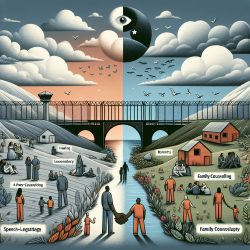Introduction
In the ever-evolving landscape of public health, the integration of gender-centered health research is becoming increasingly crucial, especially in the context of refugee resettlement. The scoping review titled Exploring the State of Gender-Centered Health Research in the Context of Refugee Resettlement in Canada: A Scoping Review offers valuable insights into how gender roles, expectations, and health are interconnected during the resettlement process in Canada.
Understanding the Gender-Health Nexus
The research identifies how gender roles and expectations influence health outcomes and access to healthcare among refugees. It highlights the challenges faced by refugee women, who are often at the intersection of multiple barriers, including language difficulties, cultural incongruities, and limited access to social support. These factors contribute to heightened mental health risks and restricted access to essential health services.
Key Findings and Implications for Practitioners
- Micro Level: Gender roles within families can impact health-seeking behaviors, where women often prioritize their family's health over their own. This can lead to delayed healthcare access and increased stress.
- Meso Level: The loss of social support networks exacerbates feelings of isolation among refugees. Community engagement and support groups can play a pivotal role in mitigating these effects.
- Macro Level: Structural barriers such as language and transportation hinder access to healthcare. Practitioners should advocate for culturally sensitive health services and improved accessibility.
Strategies for Improvement
Practitioners can enhance their skills by incorporating the following strategies based on the research findings:
- Engage in continuous education on gender-sensitive approaches to health and resettlement services.
- Advocate for policy changes that address structural barriers in healthcare access for refugees.
- Foster community-based initiatives that enhance social support networks for refugees.
- Collaborate with interdisciplinary teams to develop holistic and culturally sensitive health programs.
Encouraging Further Research
While this review provides a comprehensive overview, it also highlights gaps in existing literature, particularly regarding the resilience strategies of refugee women and the experiences of LGBTQ+ refugees. Practitioners are encouraged to pursue further research in these areas to develop more inclusive and effective health interventions.
To read the original research paper, please follow this link: Exploring the State of Gender-Centered Health Research in the Context of Refugee Resettlement in Canada: A Scoping Review.










